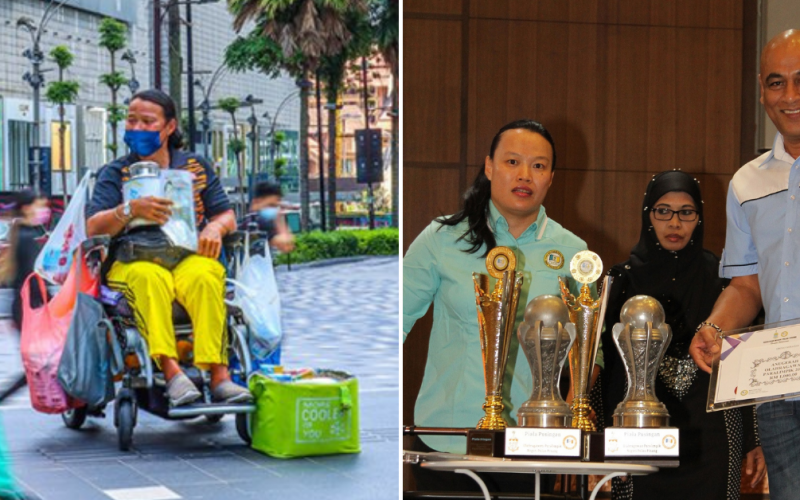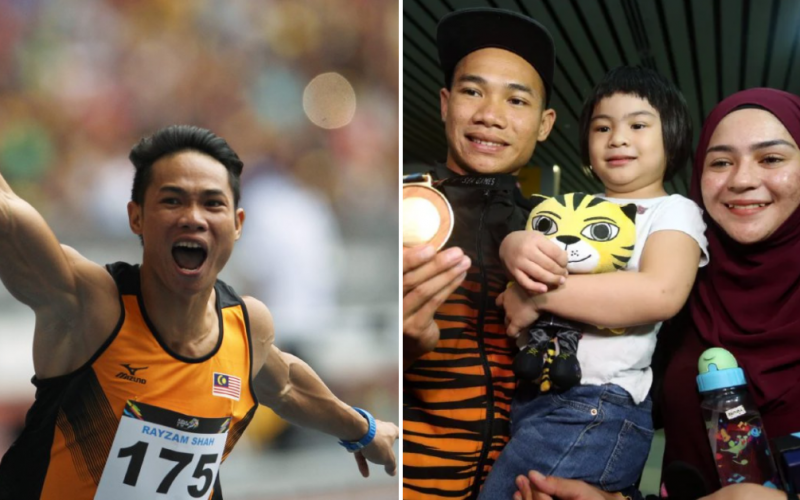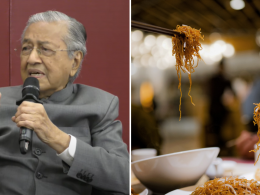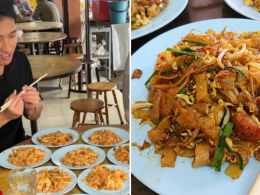Seated on a wheelchair under the blazing afternoon heat, a woman could be seen selling handmade tissue paper covers to pedestrians who stroll on by. And while street vendors are a common sight along the popular Bukit Bintang stretch, eagle-eyed observers may notice that this woman could be seen wearing the immediately recognisable stripes of the national Harimau Malaya national jersey.
Former national Paralympian swimmer scorned
In her hands, she holds on to a metal canister where she keeps her earnings from the day, while another shows a newspaper clipping that reads in stark lettering: ‘Bekas atlet renang OKU dicemuh’. Former OKU swimming athlete scorned. She is none other than former national Paralympian athlete Koh Lee Peng, who had represented the country for the ASEAN Para Games between the years of 2001 to 2005 as a swimmer, bringing home a whopping seven gold medals and three silvers.
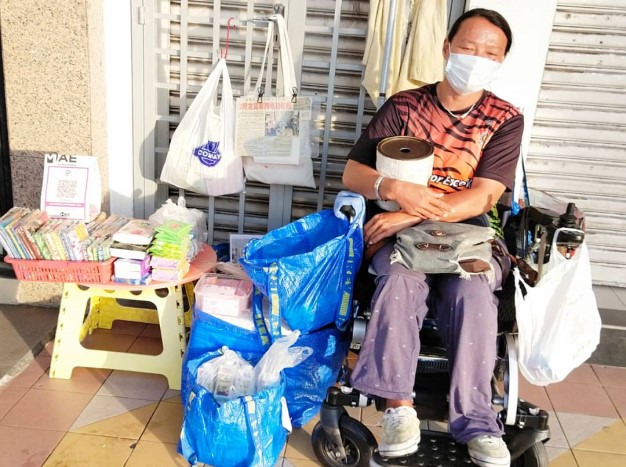
In 2015, she was recognised with an award by the Penang State Sports Council as the Best Paralympic Sportswoman, followed by being named as the 2016 Female Paralympian of the Year at the Penang State Sports Awards in 2017.
Despite the accolades, she now relies on the sale of her handmade tissue paper covers to survive. Her story has recently gained nationwide attention after Twitter user @fxwxb shared his own encounter with her last Friday (14th January 2022).
Someone was selling this tissue cover in Bukit Bintang yesterday. She was in her wheelchair, & wearing the recognizable 'Harimau Malaya' polo shirt.
She was holding a torn up laminated newspaper, and I could only make up what the title was-
"Bekas Atlet Renang OKU Dicemuh". pic.twitter.com/u2SJmJ1wDb
— fxwxb (@fxwxb) January 15, 2022
@fxwxb, who also goes by Fayadh Wahab, expressed his dismay and anger at the situation that Koh had been left with, in light of her contributions in the name of the country. Koh, who introduced herself to both Fayadh and his companion at the time, even went so far to ask them to look her up on YouTube, if they didn’t believe that she was who she claimed to be.
“You can look me up on YouTube. This is what I do for a living now. I don’t feel ashamed.” she said.
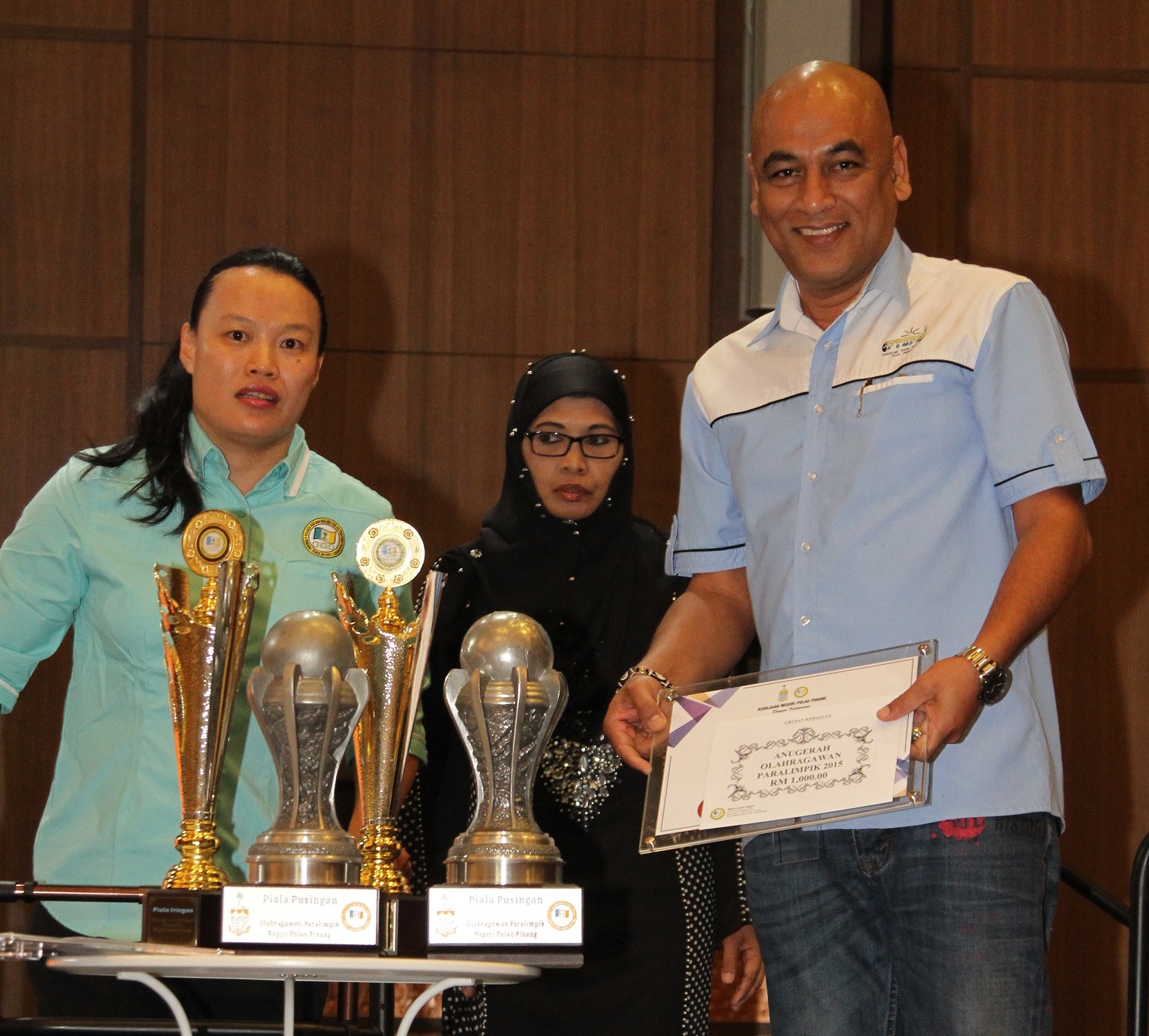
The 48-year-old former national Paralympian swimmer, who is unable to walk in both legs, had been selling tissue covers as far back as three years ago, according to an interview with Berita Harian dated 13th October 2019. While she had held down an office job before, she eventually had to give it up due to mobility challenges that she had faced in the office premises, which lacked an elevator.
Faced ridicule during her time selling tissue paper covers
Upon reuniting with a friend of hers from 20-years ago, she eventually started a small business of her own selling tissue covers outside the Maybank branch in Bandar Perda, Bukit Mertajam. But running a business is in itself fraught with challenges, with Koh facing ridicule from many who had claimed she was part of a foreign syndicate attempting to profit off the sympathy of Malaysians.
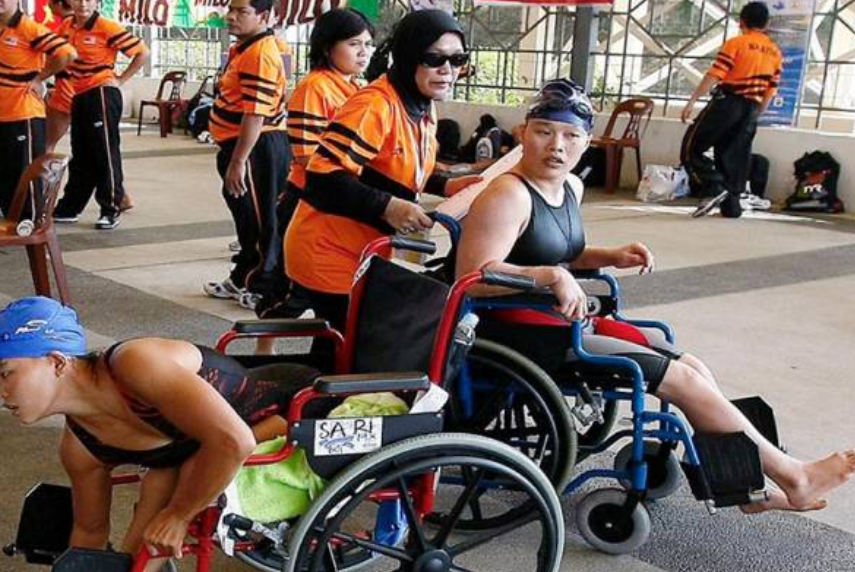
In some instances, she was even accused of being a Vietnamese, Thai, or Filipino national and was urged to provide her MyKad as proof of identification. She no longer does so out of fear, after her identification card was snatched away from her once. In spite of that, she remains fiercely independent and insists on earning a living on her own.
On average, she now makes about RM800 from the sale of her tissue paper covers and receives an additional RM300 monthly assistance from the National Athlete Welfare Foundation (YAKEB).
“I am frustrated by the perception that the public has, as what I am doing now is selling tissues to earn a living. I’m not asking for alms.” she said.
This may be an indicator of a more deeply entrenched problem with unemployment
According to Faydh, the Paralympian athlete’s circumstances are symptomatic of a larger problem regarding the issue with unemployment, and mismatched employment within Malaysia. And while he is thankful that his Tweet has brought in immediate assistance to Koh’s situation, it fails to address the other part of the matter at hand.
Several news media have asked my permission to use this Tweet for their news, & I made 1 matter clear-
Koh Lee Peng's issue is a symptom of several problems which are (1) Underemployment, and (2) mismatch unemployment.
Giving Ms. Koh employment is merely removing 1 symptom. https://t.co/PaJF66IxZY
— fxwxb (@fxwxb) January 16, 2022
He points to the Human Capital Index (HCI), which is used by the World Bank as an indicator that ‘quantifies the contribution of health and education to the productivity of the next generation of workers’, and the potential income they are foregoing as a result of Human Capital gaps.
“It’s like having an engineering degree, but you’re working for less.
‘I studied Geospatial, but now I’m working in HR’. Sound familiar?” Faydh explains.
Inevitably, this will lead to a mismatch between a person’s actual skillset and expertise, with the job that they have. Faydh points out that as of 2020, Malaysia ranks #62 on the HCI, with a score of 0.61. Comparatively, neighbouing Singapore ranks #1 on the HCI, with a score of 0.88.
The ideal solution here is to have @KemPendidikan, @jpt_kpt, & @myksm
to work together.To bridge that mismatch, & to equip the next generation to be able to migrate their career, if they are not able to migrate their physical self.
— fxwxb (@fxwxb) January 16, 2022
He has urged the Ministry of Education, Ministry of Higher Education and Ministry of Human Resources to collaborate on coming up with a potential solution to the matter at hand. And while he does acknowledge the stopgap solutions in providing monetary assistance to Koh, he says that the problem has to be addressed at its root.
Giving Ms. Koh a job that's linked to her skill set is great, and I wouldn't discount that effort.
However, if this blows off and nothing is done on mismatch unemployment & underemployment policies- we're just sweeping 1 problem at a time under the rug.
— fxwxb (@fxwxb) January 16, 2022
For more stories like this, follow us on Facebook!




